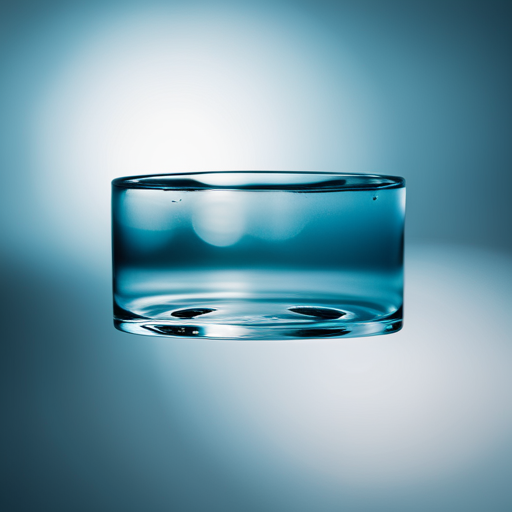Are you tired of dealing with clogged pipes and damaged appliances due to hard water? Or maybe you’re concerned about the safety of the drinking water in your home?
Understanding the differences between hard and soft water is essential in addressing these concerns.
In this article, we’ll take a closer look at the nuances of hard water vs. soft water. We’ll explain what causes water hardness, the signs to look out for, and the benefits of using water softeners.
We’ll also explore how the type of water you have in your home, whether it’s well water or city water, can impact its hardness.
By the end of this article, you’ll have a better understanding of the impact of hard and soft water on your health, household appliances, and the environment.
Key Takeaways
– Well water is more likely to be hard and can cause problems such as clogged pipes and soap scum buildup.
– Water hardness is essentially the result of dissolved minerals, namely calcium and magnesium, and can be observed through signs such as spotty dishes and dry skin after washing.
– Drinking hard water could be good for health due to increased mineral intake, but it can also cause aesthetic issues such as dry skin and hair.
– Water softeners can be an effective solution for hard water, with different types such as salt-based, salt-free, and magnetic systems available for research and comparison.
Well Water vs. City Water
If you have well water, you should be aware that it’s more likely to be hard due to exposure to mineral-rich soil and rock. However, there are also benefits of well water, such as being fresher and including minerals that are good for your health.
Testing is needed to determine if the water is hard and if a water filtration system is necessary. It’s important to note that well water maintenance and testing is the responsibility of the well user.
On the other hand, city water is filtered before reaching your home and is regularly tested for harmful substances and bacteria. Water quality regulations for city water are the responsibility of the local government or water supplier.
While city water may not have the same benefits as well water, it’s generally considered safer for consumption and less likely to cause problems such as clogged pipes or damaged appliances.
Water Hardness Explained
Understanding the difference in mineral content between water sources is crucial to identifying potential issues with your plumbing and appliances. Water hardness is essentially the result of dissolved minerals, namely calcium and magnesium, and can cause problems such as clogged pipes, damaged appliances, and soap scum buildup.
Observing signs of water hardness, such as spotty dishes and dry skin after washing, isn’t a guarantee of hard water. Advanced tests for hard water include using a hard water strip that can be purchased from the internet or local hardware store.
It’s important to note that drinking hard water may actually have health benefits due to increased mineral intake. However, hard water can cause aesthetic issues such as dry skin and hair. Soft water, on the other hand, has low levels of dissolved minerals and is safe to drink.
Regardless of the type of water you have, testing is needed to determine if the water is hard and to ensure proper maintenance of your plumbing and appliances.
Water Softener Options
To choose the right water softener, consider researching and comparing the advantages and disadvantages of salt-based, salt-free, and magnetic systems. Here are some factors to consider when choosing a water softener system:
1. Cost: Salt-based systems tend to be more expensive upfront, but salt-free systems require more frequent filter replacements, which can add up over time.
2. Maintenance: Salt-based systems require regular refilling of the salt tank, while salt-free systems require filter replacements.
3. Effectiveness: Salt-based systems are more effective at removing minerals, but salt-free systems are better at preserving useful minerals in the water.
4. Environmental impact: Salt-based systems can contribute to salt pollution in the environment, while salt-free systems are more eco-friendly.
Ultimately, the best water softener for you depends on your specific needs and preferences. Consider these factors and do your research before making a decision.
Conclusion
Now that you know the difference between hard water and soft water, it’s essential to take steps to ensure your water is safe and healthy for you and your family.
If you’re unsure about the quality of your water, you can have it tested by a professional, who will give you a detailed report on the mineral content of your water.
Once you know your water’s hardness level, you can choose the appropriate water softener for your home. Remember, hard water can cause a range of problems, from damaging your appliances to causing skin irritation and hair loss.
By investing in a water softener, you can protect your health, prolong the lifespan of your appliances, and enjoy the benefits of clean, safe, and soft water.
So, take action today and ensure that your water is the best it can be!
